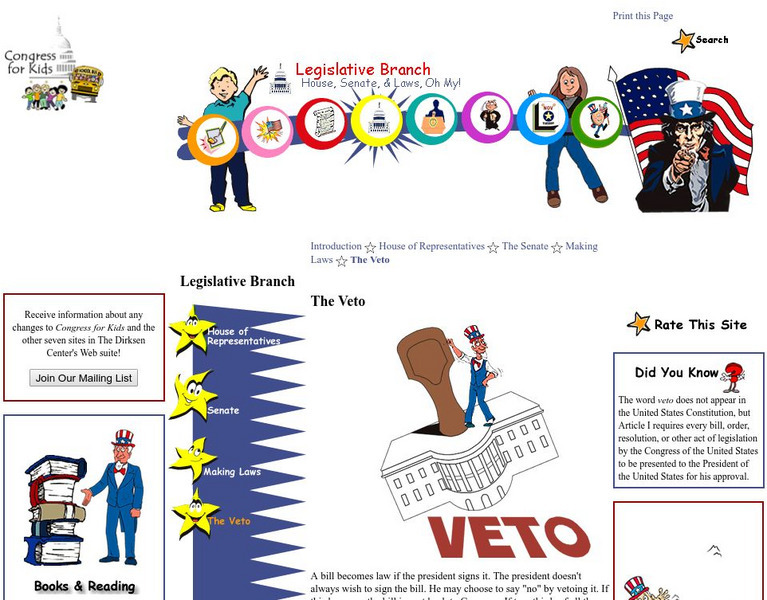Curated OER
The Executive Branch
Students identify the key terms and describe each one as it applies to the Executive Branch. Students identify and analyze the powers and duties of the president. Students discuss the Executive Branch in more detail, including the...
US National Archives
National Archives: Congress at Work: Presidential Veto
The veto process is an integral part of our checks and balances. Introduce the power of the presidential veto and override to a class using an example from President Nixon's administration. Materials include the Constitution, worksheets,...
Other
President Gerald Ford's Veto of Railroad Retirement
Text of the message that President Ford wrote to the House of Representatives in 1974 stating his reasons for his veto of the Railroad Retirement Benefits Legislation.
Other
The Federalist Papers:convention, Constitution,& Debates
A clickable index of the 85 Federalist Papers. The text of each letter (paper) sent to New York newspapers in 1787 and 1788 is easily accessed.
Independence Hall Association
U.s. History: A Strong Presidency
See how Andrew Jackson handled his role as president and advocate of the common man. His using the spoils system had an altruistic beginning, but it soon became a function of corruption.
Shippensburg University
Shippensburg University: Weighted Voting Systems [Ppt]
This PowerPoint explains how a weighted voting system works and the notation and terminology used to discuss them.
The Dirksen Congressional Center
Congress for Kids: The Legislative Branch: The Veto
Learn about the President's power to veto a bill, and understand how Congress responds when this happens.
iCivics
I Civics: Mini Lesson: Veto Power
Explores the presidential veto and pocket veto powers, their role as a negotiating tool, and the Congressional veto override process. Students also learn how to use fact-checking and triangulation to evaluate news claims and detect...
Social Studies for Kids
Social Studies for Kids: The Presidential Veto
The President of the United States has extraordinary power over the shaping of federal laws. He or she can veto any law passed by Congress.





